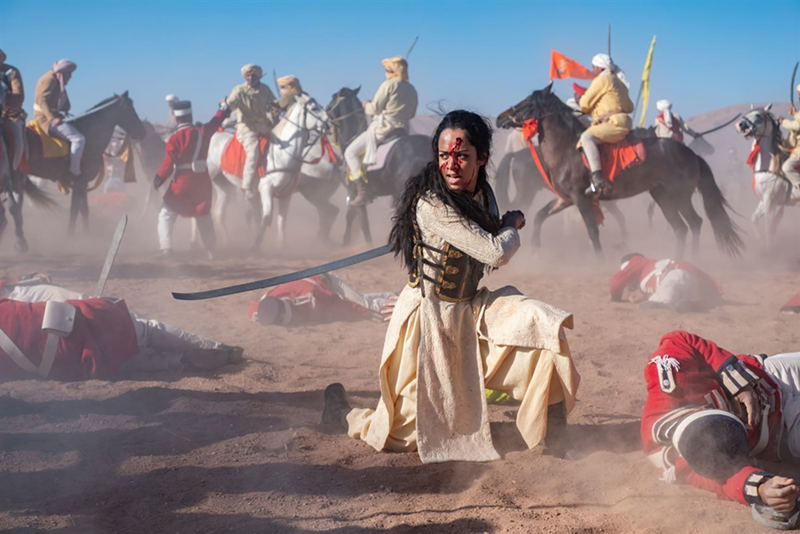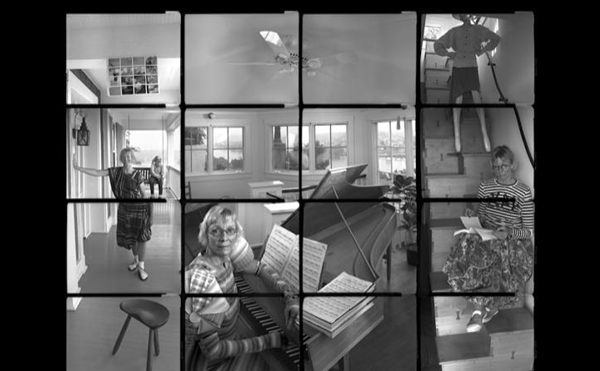The new biopic The Warrior Queen of Jhansi tells the true story of the Rani of Jhansi, a feminist icon in India who went to battle with the British army in the 19th century. The real events resemble a David and Goliath-like story about how an unlikely insurrection shifted the balance of power in the region and set in motion the demise of the British East India Company and the beginning of the British Raj under Queen Victoria. An inspirational look back at a significant historical moment, the film delivers its message with a fairly heavy hand.
The movie begins in the 1600s with a bit of backstory about the British East India Company, which came to fruition as trade routes expanded to India and surrounding countries. Flash forward 200 years, and the company has shifted its focus from trading to conquest and threatens the country of Jhansi. When Jhansi's king dies, the East India Company takes advantage of the country's vulnerable position and announces the decision to invade the country, a British ally. Jhansi doesn't have an army and has always relied on the British to defend it. "All that has changed. You must assume you're on your own," a British solider tells the country's rani (Devika Bhise), or queen.
When the rani refuses to surrender, the British army turns on her. British cannons bust holes in the walls surrounding the city, and the rani must rally her ragtag army to defend the country. The battle that ensues as British soldiers storm the gates and mount the walls with ladders is particularly bloody. The rani's army fights with swords and the British, who use rifles, have a distinct advantage. The rani's father taught her to fight when she was a child, and she possesses serious skills. "She's more than just a woman; she's a concept," a British soldier (Ben Lamb) says at one point.
As a history (or "herstory") lesson, the film succeeds. It shows just how much British intervention in the region wreaked havoc in the 1800s. But with its many speeches about freedom and independence, this film by director Swati Bhise, a Bharatanatyam dancer and choreographer, is better suited to the classroom than the movie theater. (Opens Nov. 15) (R)






